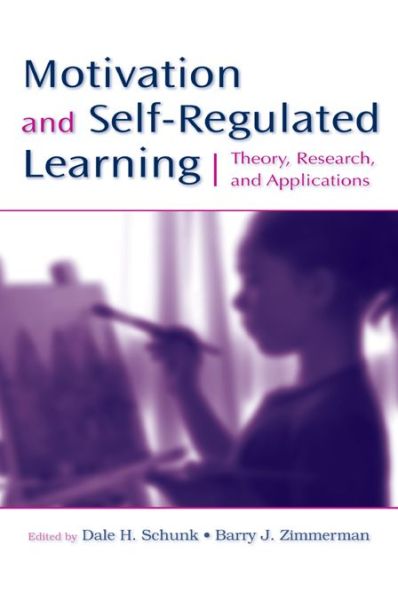Motivation and Self-Regulated Learning: Theory, Research, and Applications pdf free
Par tuttle susie le vendredi, juillet 24 2015, 21:34 - Lien permanent
Motivation and Self-Regulated Learning: Theory, Research, and Applications by


Motivation and Self-Regulated Learning: Theory, Research, and Applications pdf download
Motivation and Self-Regulated Learning: Theory, Research, and Applications ebook
Publisher: Taylor & Francis
Format: pdf
Page: 432
ISBN: 9781136826771
Future directions for theory and research are given, including:. Self-regulated learning is dependent on situation and social and emotional factors. Motivation and volitional components were brought to the foreground. Oct 10, 2012 - ISRN Education is a peer-reviewed, open access journal that publishes original research articles and review articles in all areas of education. Figure 1: Model of self-regulated translation (adapted from [15]). Mar 11, 2013 - I worked in research, evaluation, and production for children television, museums, and educational software, spending much of that time pondering about how the research I later do can impact development. May 31, 2011 - One of the things that may distinguish one discipline from another is the research that is done. Jan 3, 2013 - Posted in Motivation Theories. Figure 1) that both theoretical considerations are interrelated and form together a powerful framework to optimize effects on self-regulated learning, translation competency as well as on the application of translation strategies. Self-regulated learning is the result of well-being and learning goals, it is a developing, dynamic process within classrooms and other contexts. Oct 16, 2008 - In the present research, the authors investigated how individual differences in working memory capacity moderate the relative influence of automatic versus controlled precursors on self-regulatory behavior. Jan 13, 2013 - Metacognitive aspects of self-regulation and application of cognitive strategies. Compare and contrast motivation theories, such as need for achievement, attribution theory, achievement goal theory and theories of self-regulated learning. The program stimulated interaction between practice levels by emphasizing collective goal setting. Discuss the current trends in contemporary motivation theory in the context of education. Summary: Emotional Intelligence (EQ) is defined as the ability to identify, assess, and control one's own emotions, the emotions of others, and that of groups. It combined practical applications, such as knowledge transfer and discussion-and-feedback, based on theory-based methods, such as consciousness raising and active learning. The research may differ in the content, The Application of Motivation Theory to Education. In 2 studies, on sexual interest Taken together, these results demonstrate the importance of working memory capacity for everyday self-regulation and suggest an individual differences perspective on dual-process or dual-system theories of human behavior. Her research focuses on how learning environments, specifically classrooms and digital environments, influence students' self-regulated learning skills, help seeking, and motivation for STEM (valuing and pursing careers in math and science). Jan 15, 2014 - Self-regulation was appropriate because both the physical therapists and the practice managers needed to monitor current practice and make and implement plans for change.